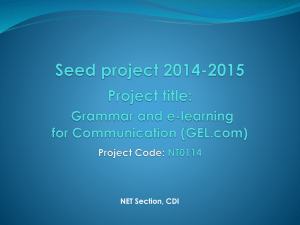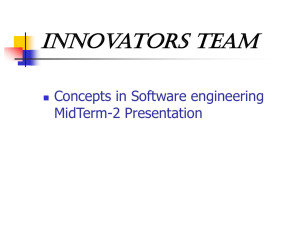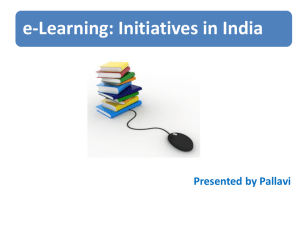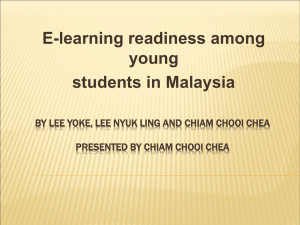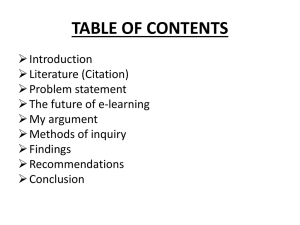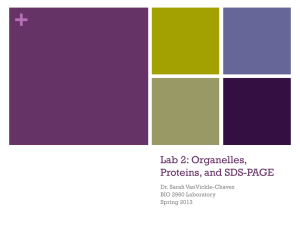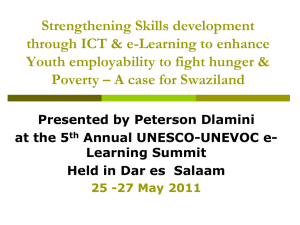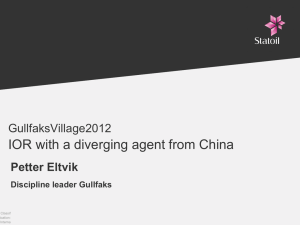Slide 1
advertisement
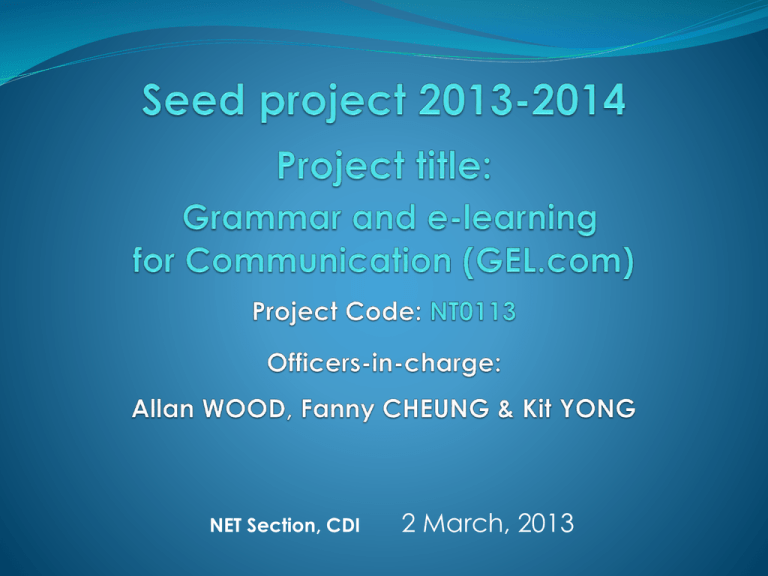
NET Section, CDI 2 March, 2013 Grammar and e-learning for Communication (GEL.com) This project: is to encourage schools to go in tandem with one of the current trends in education - e-learning; aims to develop school-based grammar learning at KS2; and promotes the use of e-learning for enhancing the overall English language competence of students for real-life communication. Considerations for student involvement: How does e-learning strengthen students’ motivation and capacity to use grammar for communication? How can e-learning be exploited to cater for learner diversity through collaboration and communication with students’ learning partners? Considerations for teacher involvement : What pedagogical knowledge and skills are critical for the effective design and use of e-learning tools and resources? What skills and knowledge are critical for the effective teaching and assessment of grammar competence at the upper primary level? What is e-learning? “We will call e-learning all forms of electronic supported learning and teaching, which are procedural in character and aim to effect the construction of knowledge with reference to individual experience, practice and knowledge of the learner.” The Electronic Journal of e-Learning, 2004 What is e-learning in the GEL project? We envisage that: teachers will use existing software, hardware and/or develop their own resources; the resources will be developed in conjunction with the school’s English Language curriculum; students will interact with the designed programme; and students can learn at their own pace. Information technology for interactive learning: enhances learners’ motivation and language skills through a process that allows immediate feedback; allows learners to take charge of their learning at a pace that suits their ability level; encourages learners to become critically active users of English; and engages learners in interactive and/or collaborative work. Adapted from ELCG 2004 p. 105-6 Proposed GEL project approach The e-learning activities could be embedded within text types or themes which: - allow for authentic communication; - are readily available on the internet; - focus students’ learning in line with their GE programme/ textbook themes; and - encourage the use of the four language skills through interactive activities. Grammar in GEL.com: The grammar items selected for use in the project will be based on the school’s General English programme/ textbook. The selected grammar items will be taught in context. The items will be taught and practised in a logical continuum: - focusing on the structure, formation and meaning of an item; - practising with some attention to meaning rather than communicating new messages; - practising in a context where it communicates new information; and - communicating in situations which elicit the pre-learnt item. Implementing the project Within the GEL project, the Seed school will work towards: developing meaningful e-learning tasks to support the learning of grammar in context; using knowledge gained in these tasks for real-world communication; and developing methods of assessment to gauge the effectiveness of e-learning activities in enhancing communication. The Seed school is expected to: nominate an experienced and committed English teacher to be seconded to the NET Section for a year; provide strong and stable internet and intranet access including wi-fi; provide a computer room with an upgraded system and sufficient hardware to cater for every class; identify a year level in KS2 for the GEL project; deploy the NET to that particular year level; allocate at least one hour per week for a collaborative planning meeting for all project teachers; allocate 45 - 60 minutes of lesson time per week to the project; support data collection, e.g. classroom observation, video recordings of GEL students/teachers; and lessons/tasks, interviewing share with other schools their experiences in conducting the project. Seconded Teacher (ST) The ST is expected to: collaborate with ATs in the NET Section to develop, evaluate and implement e-learning programmes; participate in professional development programmes on relevant topics; coordinate the planning, implementation evaluation of the GEL project in the school; take the leading role in collaborative meetings for the GEL project in the school; develop, teach and evaluate GEL and planning workshops with project teachers within their own schools; and visit other schools to share good practices. The Role of the NET The NET is expected to play a role by : teaching in the GEL grade level; participating in the school’s collaborative meetings related to the GEL project; supporting the Seconded Teacher in developing and using e-learning materials and activities; and supporting data collection and assisting in the dissemination of good practices from the GEL project. planning Project Proposal Education Bureau Circular Memorandum NO. 7/2013 Staff Interflow Schemes 2013 Project title: Grammar and e-learning for Communication (GEL.com) Project code: NT 0113 Section: Native-speaking English Teacher Section, Curriculum Development Institute Deadline for Application: 22 March 2013 Enquiries Administrative matters: Mr Ken Ho Project Executive (NET) Tel : 3549 8331 Fax : 2334 8707 E-mail : kenkyho@edb.gov.hk Professional matters: Ms Teresa Chu Assistant Project Manager (4) Tel: 3549 8336 Fax: 3549 8378 E-mail: teresachu@edb.gov.hk Mr Allan Wood AT(PNET)15 Tel: 35498311 Fax: 3549 8379 E-mail: allanwood@edb.gov.hk Send in Your Proposal by Post EDB Human Resources Management Unit Room 1636, 16/F, Wu Chung House, 213 Queen’s Road East, Wanchai, Hong Kong. (Application for Staff Interflow Schemes 2013) Q and A Anything more you want to know? Thank you very much for coming!
